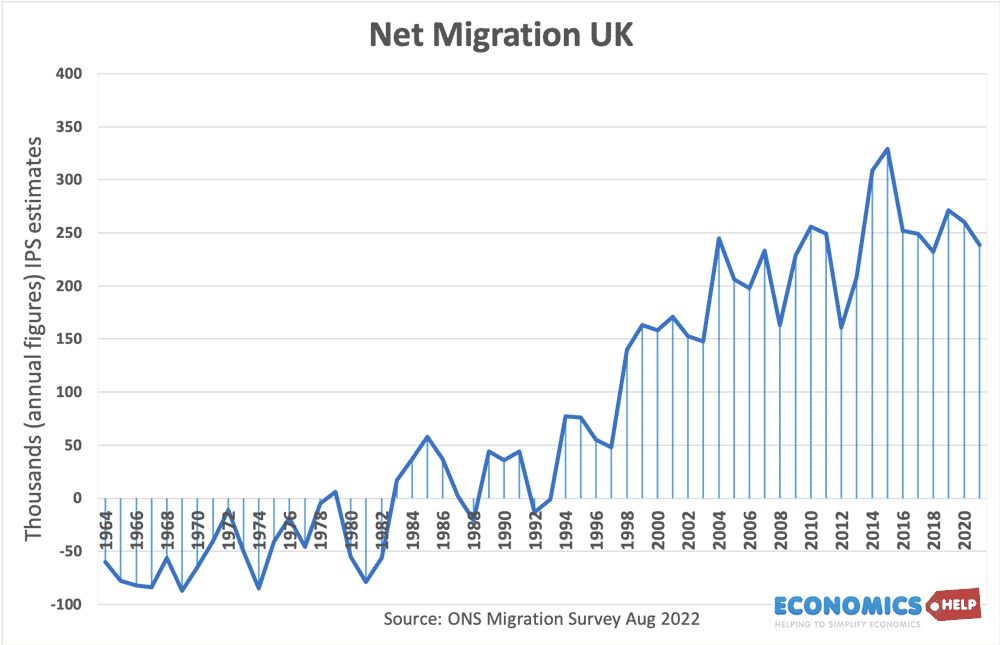
On a basic level net migration will increase gross domestic product, for two reasons.
- Bigger workforce
- Increase in demand in the economy.
But what effect will immigration have on per capita income, tax revenues employment and other factors affecting living standards like housing costs?
Impact on tax revenue
Research from UCL found between 1995 and 2011, EEA immigrants gave 20% more ratio of revenue to expenditure.
The UK government (HMRC, 2018) show that in 2015/16, EEA nationals paid £15.5bn more in income tax and national insurance than they took out in tax credits and child benefit.
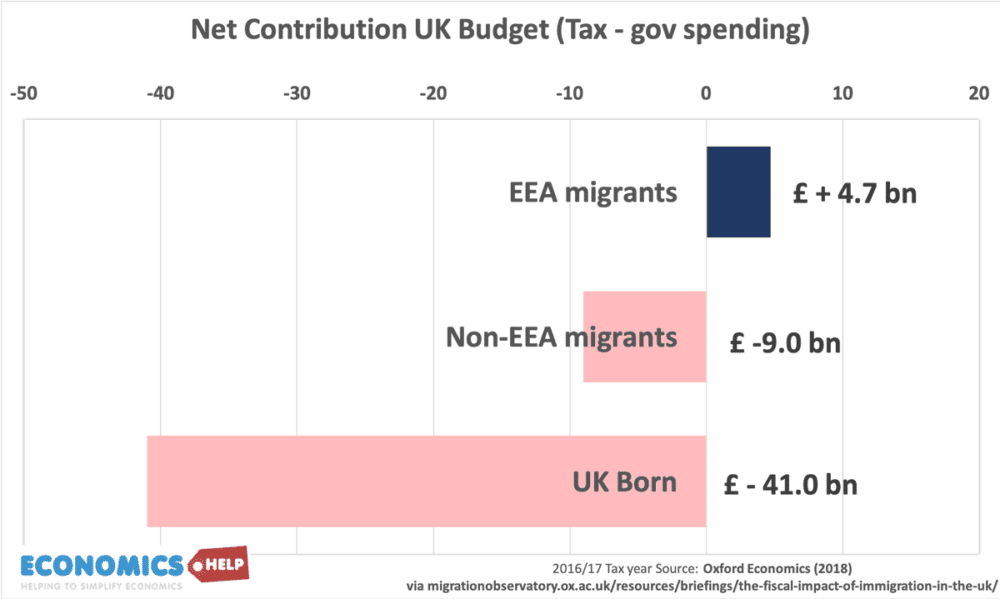
Though it is worth mentioning Non-EEA migrants didn’t give as much tax benefit – because they were of different age profile – more likely to be grandparents or more children.
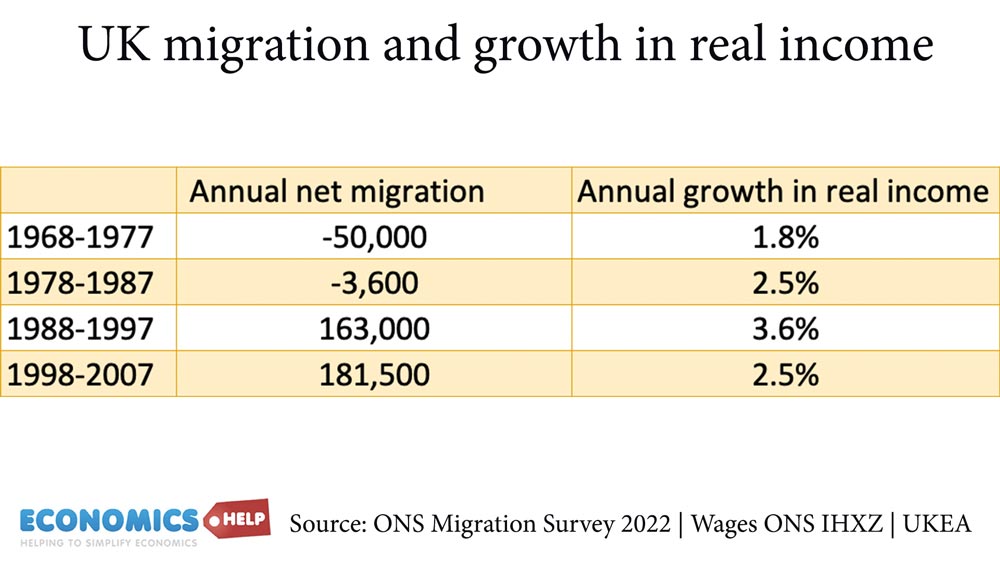
Up until 2007, net migration is compatible with rising real incomes.
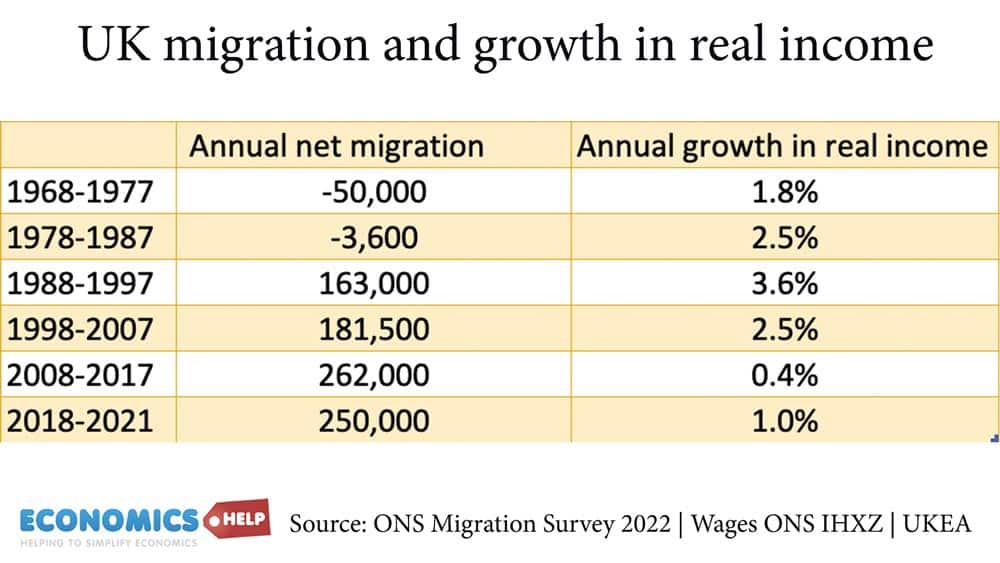
However, after 2007, real wage growth slows down quite dramatically due to the financial crisis and its aftermath.
Demographics and Migration
In the western world, birth rates are falling fast. This means we have both an ageing population and in some cases a declining population.
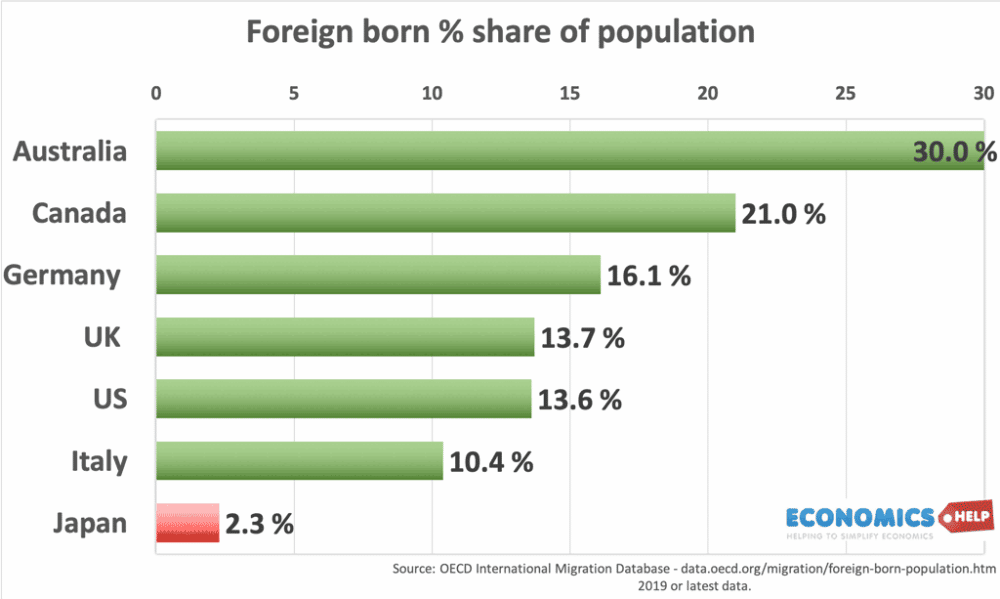
Immigration is one solution to this demographic crunch. For example, Japan which has historically had extremely limited migration has experienced a rapidly ageing population. This has resulted in a sharp fall in the working-age population. With a median age of 48.4 years, its population is the oldest in the world. In stores across the country, adult diapers now outsell baby diapers by 2.5 times.
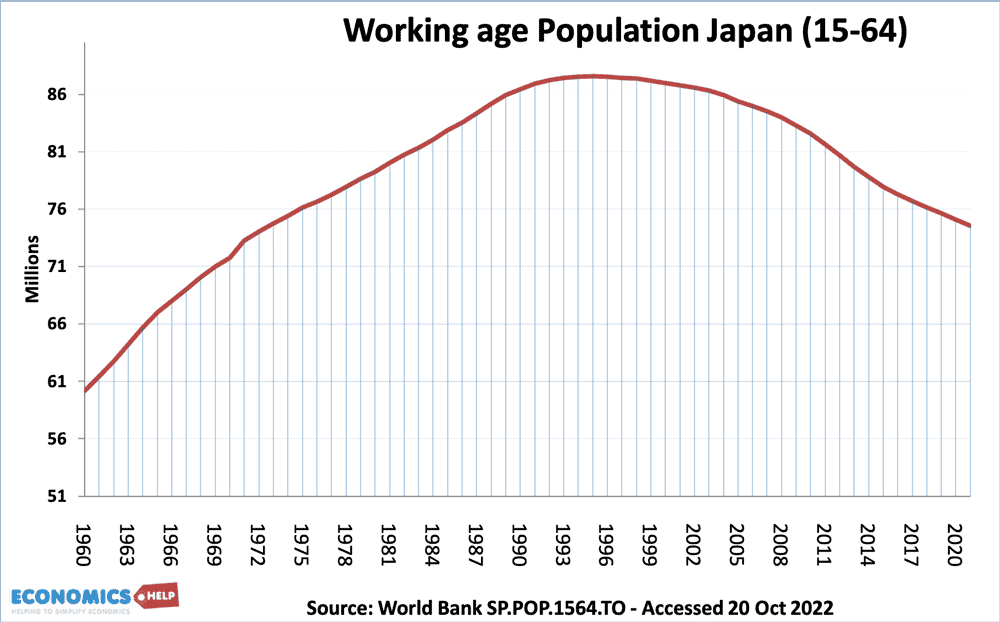
This has contributed to a sharp fall in economic growth
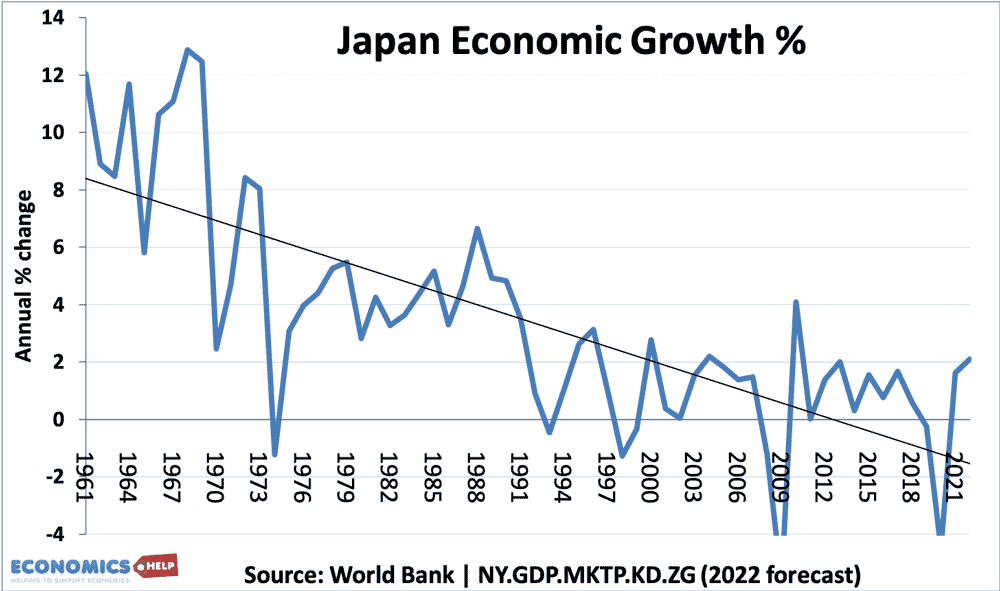
Obviously, with lower population growth, we expect lower economic growth. But, the Japanese economy has experienced one of the worst growths in median wages
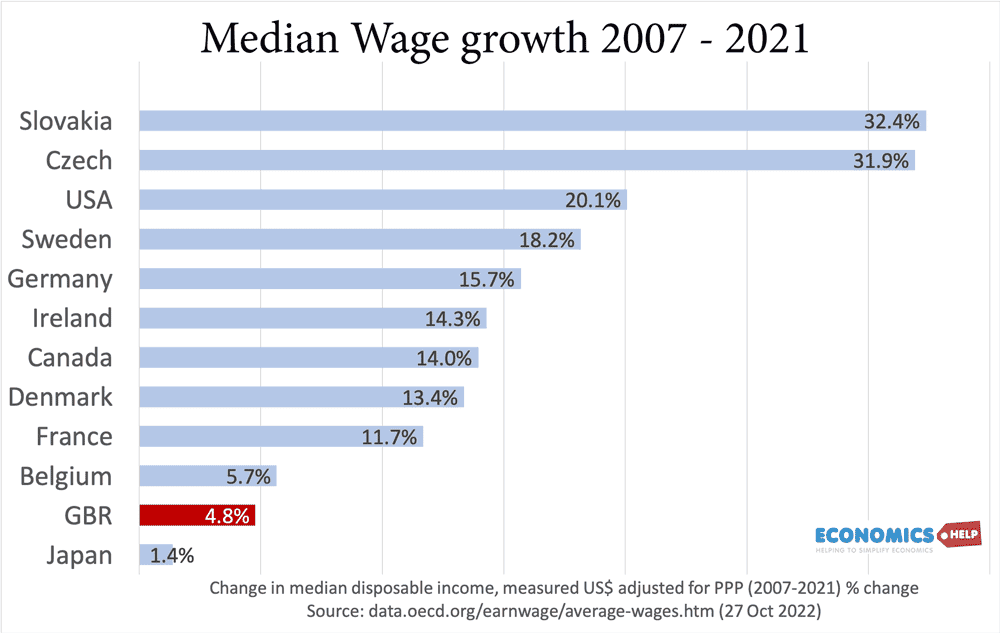
Japanese median wage growth between 2007 and 2021 has barely changed. This contrasts sharply with the 60s, 70s, and 80s, when its ‘economic miracle’ was the envy of the world.
In fact, in recent years, Japan’s notoriously strict immigration rules have been somewhat relaxed. Nearly 3 million migrants live in Japan out of a population of 126 million. Around 2.5% but three times the level of 1990. But, still very low compared to other countries and the loss of working age population. This collapse in the working-age population has not caused rising wages, as you might expect.
By contrast, the UK working population has continued to grow – partly helped by migration.
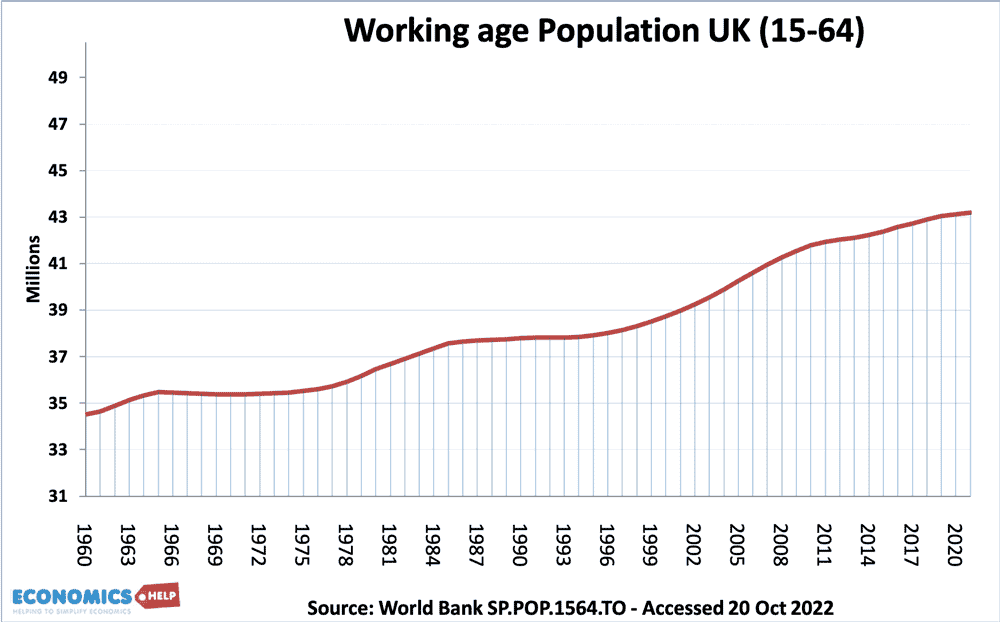
The Migration Observatory reports, that in 2019, 70% of the foreign-born were aged 26-64, compared to 48% of the UK-born (link).
Immigration and tax revenues
Immigrants tend to be of working age and therefore pay more tax. This is especially true of migrants from the EU, who were more likely to pay tax and 45% less likely to receive state benefits of tax credits.
Immigrants and the Housing Market
Whilst western economies often face labour shortages, there is also a shortage of housing and large inflows of the population can easily exacerbate the housing shortage. According to Oxford Migration survey, 74% of recent migrants were in the privately rented sector in the first quarter of 2015. (link) This has pushed up renting prices and also house prices.
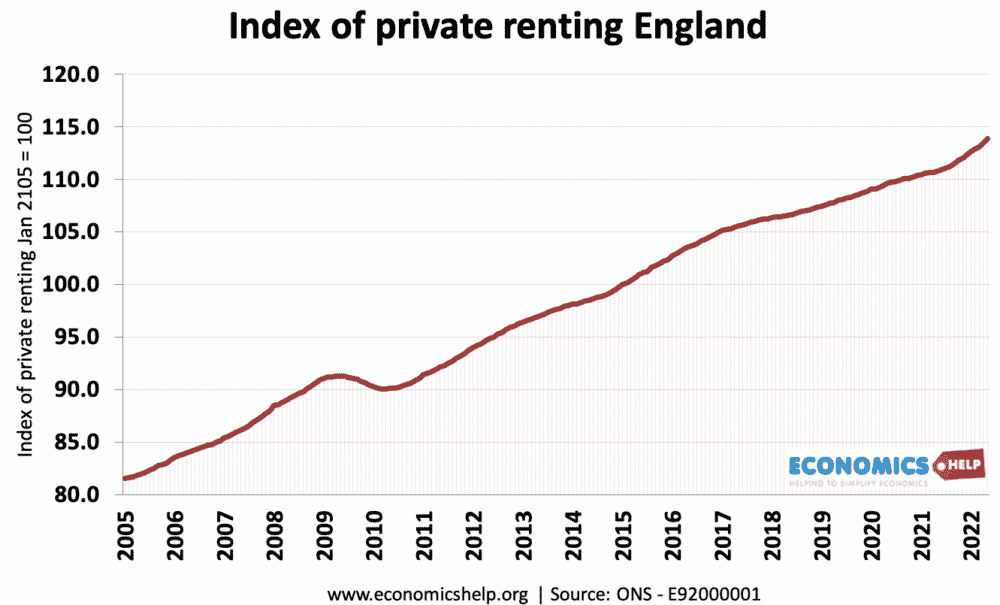
Approx 40% rise in rentable costs since 2005.
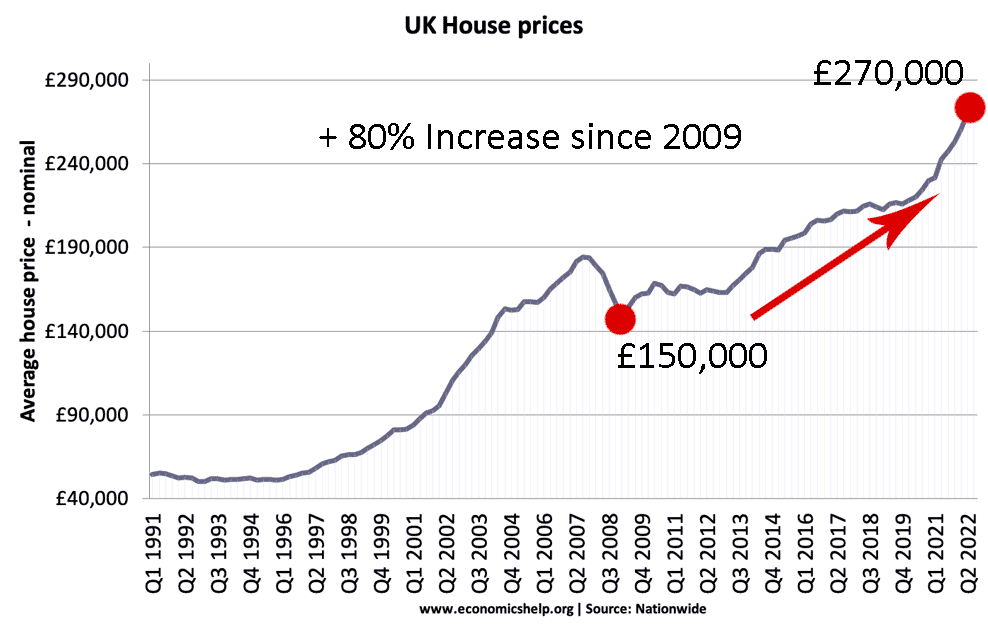
UK house prices have risen 80% since 2009.
Roughly half of the UK’s recent population growth has been driven by net migration. This rise in the population has magnified the increase in house prices.
The Ministry of Housing, Communities and Local Government (MHCLG) found that between 1991 and 2015 immigration had contributed to a 20% rise in house prices (Study p.76)
Of course, if sufficient houses were built to accommodate the growing population, it would not cause excess house prices and rentable incomes. But, for many reasons, the UK (like many other western economies) struggles to build sufficient homes – especially in the most desirable areas for migrants to move to. One possible evaluation is that migrants often work in construction, which in theory could help increase supply of housing.
Many other factors are behind high house prices apart from migration – ultra-low interest rates, a decrease in the average size of households,
Does immigration hurt low-wage workers?
One argument put forwards is that immigration particularly affects low-paid workers as migrant workers are willing to undercut workers with low skills.
A recent study by the Bank of England found a rise in immigration had a small impact on overall wages – with a 10% increase in immigration – wages fall by 0.31% – almost negligible. Whilst the impact for low-skilled is slightly more pronounced but still quite marginal.
Pressure on public services
In theory net migration, boosts tax revenues relative to government spending. This could enable the government to spend more on public services. However, if the government is in a weak fiscal position, it may not increase spending on public services to match rise in population. Therefore, local people who see a rise in the population do not see an equivalent rise in the quality of services, so understandably blame migration. But, the underlying issue is actually an unwillingness to finance public services. Without migration boosting tax revenues, public services could be even weaker. This was certainly an issue during the 2010s and the government’s austerity.
Further reading
